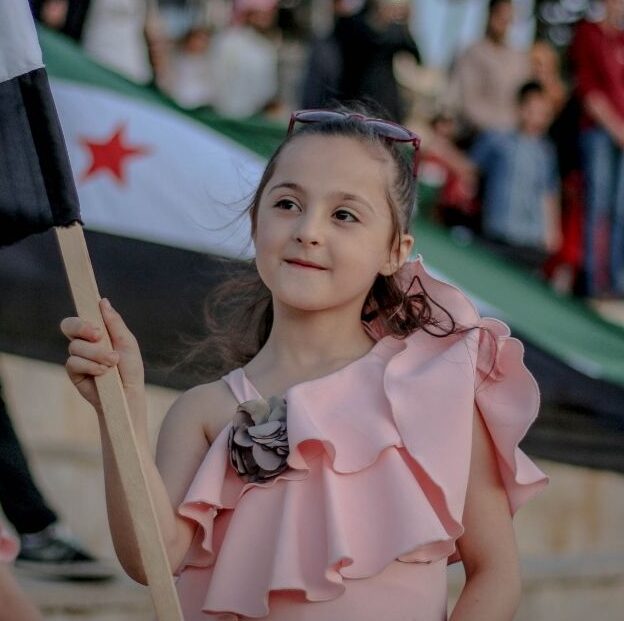By…
How a decade of war in Syria has led to serious gender-based human rights violations.
Political Correspondent Katarzyna Rybarczyk shares how women have been disproportionately affected.

By Katarzyna Rybarczyk
This year marks ten years since the Syrian uprisings against the president started and the country spiralled into a civil war that killed hundreds of thousands and pushed around eighty per cent of the population into poverty. The protestors demanded freedom and justice, and yet many were forced to flee their homes, escaping wide-scale brutality and state persecution. The violent conflict between the government, backed by Russia and Iran, and the opposition, supported by the West, as well as several Gulf Arab states, has quickly turned the country into a humanitarian crisis of epic proportions.
Since the outbreak of the war, women have been disproportionately affected. They have to not only deal with the dangers of the war but also cope with gender-based discrimination. The ongoing armed conflict has intensified gender-related violence in Syria and has led to a rise in rape cases, as well as instances of forced and child marriage.
Conflict fuelling gender-based abuse
Syrian society, where traditional gender norms dictate acceptable social behaviours, allows for the degradation of women. As a result of the ongoing armed conflict, misogynistic practices such as domestic violence have intensified, putting women and girls more at risk of sexual abuse and oppression than ever before.
Since the beginning of the war, more than twelve million Syrians have been internally displaced or are living as refugees. As a report published by Women’s International League for Peace and Freedom revealed, women represent around 50 per cent of all Syrian refugees. In camps and shelters for displaced people, women and girls are more susceptible to violence than men and boys.
In these settlements, women often fall victims to sexual exploitation and, having limited mobility, cannot escape those who hurt them. Moreover, with no sources of income, many hope that marriage could bring them and their daughters physical and financial security. Sadly, young girls who are married off to older men in exchange for money end up taken away from their loved ones and find themselves trapped in abusive relationships.
Sexual violence as a weapon of war
Over the last ten years, rape became a common occurrence and sexual violence has been used by both the Syrian government and extremist jihadist groups to achieve their respective strategic goals. They use rape to spread ‘terror and humiliation to the population’, as the UN’s Special Representative on Sexual Violence in Conflict reported. Jihadists belonging to the Islamic State would rape girls as young as twelve years old and force them into sexual slavery. Through ingraining fear in the Syrian population, they aimed to enhance their governance and authority. Additionally, selling women to new recruits would help them get money to fund their activities. Similarly, the Syrian government and associated militias regularly rape women at checkpoints and during house searches to show their superiority and demand compliance. Rape became a tool used by parties complicit in the Syrian conflict, becoming a harmful pattern serving to demonstrate who holds more power.
Moreover, in a country where the honour of a woman is considered sacred, rape is being used to cause unrest amongst the population. Women and girls who have been raped are often the ones who have to face the consequences of the acts of their perpetrators. The patriarchal culture dictates that if a woman is raped, her honour is violated. In such circumstances, entire families experience stigma and social exclusion. Hence, in Syria, women are being killed for allegedly bringing dishonour upon their families.
Women’s empowerment crucial to restoring peace
Looking at the Syrian war from the gender perspective and recognising how severely women have been affected by it is crucial to restoring peace. To protect and empower women, it is necessary to examine the challenges they face as a result of the war as these are highly specific to their gender. It is clear that the prevailing insecurity caused by the conflict has been particularly harmful to women. The problems that existed even before the war, have now been aggravated to the point where Syria has become the world’s third most dangerous country for women.
Syrian women have to deal with dual oppression; that of years of armed conflict and that of gender-based violence. Hence, the humanitarian responses to those affected by the war need to be altered to provide Syrian women and girls with better protection. The implementation of durable peace can only be achieved if women’s rights are preserved. Otherwise, even once the fighting stops, women will have to cope with discrimination and limited possibilities to rebuild their lives. As the fighting in Syria continues, however, the world is yet to see what the position of women will be in the post-war period.

Katarzyna Rybarczyk
Katarzyna Rybarczyk is a Political Correspondent for Immigration News, which is a media platform that helps to raise awareness about migrant injustices and news around the world and helps people get immigration advice. She writes articles about the struggles of refugees and security concerns facing women around the world. Through her articles, she wants to promote human rights and raise awareness about topics that do not get enough attention. She also currently serves as a Volunteer Translator for the United Nations Volunteers Regional Office for West and Central Africa.
